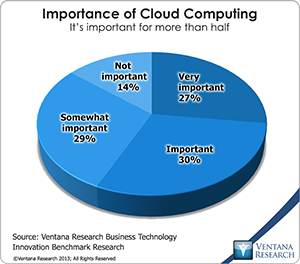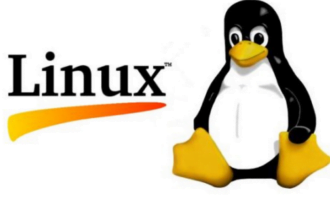At Oracle’s recent cloud computing analyst summit in sunny Palm Springs, the company’s executive team insisted that it sees clear skies for its efforts in cloud computing. The summit was led  by senior executive Thomas Kurian, who runs the entire product organization and reports directly to CEO Larry Ellison.
by senior executive Thomas Kurian, who runs the entire product organization and reports directly to CEO Larry Ellison.
At Oracle’s recent cloud computing analyst summit in sunny Palm Springs, the company’s executive team insisted that it sees clear skies for its efforts in cloud computing. The summit was led  by senior executive Thomas Kurian, who runs the entire product organization and reports directly to CEO Larry Ellison. He affirmed that Oracle intends to offer the full range of cloud computing – public, private and hybrid models – to its customers and partners. As one of the world’s largest software suppliers Oracle has much at stake to make its database and all tools and applications available in these cloud environments, including managed cloud services. Our business technology innovation research shows this is a smart bet. Cloud computing is important or very important to 57 percent of organizations, and more than half (55%) of cloud users have been using it for more than a year. I noted in 2013 that simplifying IT and innovating in business are key to its software strategy, and Oracle’s efforts since then have executed on this outline.
by senior executive Thomas Kurian, who runs the entire product organization and reports directly to CEO Larry Ellison. He affirmed that Oracle intends to offer the full range of cloud computing – public, private and hybrid models – to its customers and partners. As one of the world’s largest software suppliers Oracle has much at stake to make its database and all tools and applications available in these cloud environments, including managed cloud services. Our business technology innovation research shows this is a smart bet. Cloud computing is important or very important to 57 percent of organizations, and more than half (55%) of cloud users have been using it for more than a year. I noted in 2013 that simplifying IT and innovating in business are key to its software strategy, and Oracle’s efforts since then have executed on this outline.
Oracle has been developing a public cloud for some time, but in the last couple of years it sharpened its expertise and gained customers through acquisitions while refining its focus and investing in technology. Oracle now offers software as a service through its applications team covering HR, customer service, sales, marketing, ERP, finance, the supply chain and other areas. I recently assessed the Oracle HCM Cloud service, which provides a good example of what the company is doing and one that we awarded for 2013 Ventana Research Technology Innovation Award.
Oracle is determined to provide infrastructure as a service and elastic computing services for storage, identity verification, messaging and networking. Here it is competing directly against Amazon, IBM, Microsoft and others. Oracle also offers its platform as a service for using its database and tools in a variety of ways including the Web and mobile to collaborative methods. This strategy also includes analytics and big data. Our big data analytics research found 27 percent of organizations using cloud-based systems for this purpose, and it is gaining momentum as the preferred method of access: 22 percent prefer software as a service for big data analytics, 7 percent prefer a managed service, and 18 percent have no preference. Oracle is confident it can compete on price with other public cloud players. In addition its newest focus in the public cloud is information as a service, which brings corporate and public data together for business needs. Oracle is also strengthening its cloud computing marketplace so its software will be easy not only to access and purchase but also to onboard and use.
The private cloud computing area is somewhat different. CIOs need options to expand their compute power rapidly according to business needs; such a plan once had to be executed in the company’s data center, but now the cloud offers alternatives. In a more controlled manner than for the public cloud, Oracle provides the full life cycle of management through Oracle Enterprise Manager across its applications, platform, database and infrastructure, which can help most IT organizations simplify and reduce their focus on managing their infrastructure and enable them to focus on the value of the information and technology they provide for the business. Oracle offers multiple methods of deploying a private cloud: virtual machines for server consolidation, clustered databases for platform consolidation, and multitenant occupancy for database consolidation. Its private cloud platforms can provide a range of computing services to support applications and even enterprise deployments for use of mobile technology.
Oracle also offers a managed cloud service in which it builds and manages a private cloud environment similar to IT outsourcing except that Oracle owns the software being hosted. In this arrangement Oracle can provide in the cloud any of its applications, platform and infrastructure and can also connect to customers’ on-premises systems. Oracle says that more than 550 customers around the globe are using this service, processing 1.25 trillion business transactions per day; it stores more than 41 petabytes of data as well. In this offering Oracle competes directly with companies that have been offering this type of service in managed and outsourced approaches, including HP, Accenture and TCS. Oracle has been steadily building a strong position for its own outsourcing and managed approach to cloud computing.
These three cloud approaches have in common the Oracle database, running as a database as a service. Supporting it is the Oracle Fusion Middleware as a service that operates its business applications and is the basis to build custom applications by providing user, process, documents, information and identity services. Middleware is also where Oracle is advancing its support of mobile computing and big data as well as batch-to-real-time integration to applications and data across the enterprise and cloud along with Web services support through the REST and SOAP interfaces. Our research shows that integrating data from cloud applications is important to 80 percent of organizations. Oracle is releasing in the first part of 2014 more technology like Java, document and business intelligence as part of its Oracle Fusion Middleware as a service. Oracle has enlisted its Java technology to support the “as a service” concept to help move on-premises applications to the cloud but also to support application deployments. Oracle has worked to ensure its middleware can operate in the Microsoft Azure and Verizon Cloud services. Also part of middleware is the database as a service that is part of the Oracle cloud and of the compute service for elastic computing; it can be provisioned and used on a subscription or a usage basis; customers also can subscribe to backup as a service. Beneath the middleware and the database is the infrastructure as a service, which provides direct support for computing, storage, messaging, identity and notification services. Oracle supports integration of other cloud computing environments such as salesforce.com with its on-premises applications.
 Oracle also is expanding its presence in application-centric cloud deployments. For instance, its Oracle Business Intelligence Cloud service will be available in 2014; here it plans to provide a range of real-time and self-service analytics and integration of data from the cloud and on-premises systems. Oracle already has been supporting its own BI applications in the cloud, but this step will help it compete in a market where many options have been available for several years. Our next-generation BI research found a need for this in 2013, when 25 percent preferred software as a service for enterprise BI and nearly as many (22%) a hosted private cloud. It is even more important for mobile BI: 26 prefer cloud deployment, 30 percent chose hosted by supplier, and 36 percent had no preference; only 9 percent prefer on-premises for mobile BI. For another example, the Oracle Planning and Budgeting Cloud Service is now available, based on its Hyperion Planning software. In BI and planning in the cloud Oracle definitely is not first to market and indeed will have to catch up to build a brand and trust with customers in these areas.
Oracle also is expanding its presence in application-centric cloud deployments. For instance, its Oracle Business Intelligence Cloud service will be available in 2014; here it plans to provide a range of real-time and self-service analytics and integration of data from the cloud and on-premises systems. Oracle already has been supporting its own BI applications in the cloud, but this step will help it compete in a market where many options have been available for several years. Our next-generation BI research found a need for this in 2013, when 25 percent preferred software as a service for enterprise BI and nearly as many (22%) a hosted private cloud. It is even more important for mobile BI: 26 prefer cloud deployment, 30 percent chose hosted by supplier, and 36 percent had no preference; only 9 percent prefer on-premises for mobile BI. For another example, the Oracle Planning and Budgeting Cloud Service is now available, based on its Hyperion Planning software. In BI and planning in the cloud Oracle definitely is not first to market and indeed will have to catch up to build a brand and trust with customers in these areas.
Given its size, Oracle is uniquely positioned with server, database,  platform, tools and applications all operating in the cloud in public and private approaches and as a managed service. Only IBM is close to providing such an extensive software and technology stack. The competitive edge of preintegrating the entire stack in the cloud is a great position from which to grow its business. Our business technology innovation research finds that cloud computing has improved the availability of applications and information for business; one-third (34%) of organizations said it has improved availability significantly. In addition the research found that cloud computing has lowered costs, improved the efficiency of business processes, boosted communications and knowledge sharing, and increased productivity for more than one-third of organizations. The skies look clear and not cloudy for Oracle, which will be delivering more cloud computing on a very aggressive schedule throughout 2014 and 2015. If you are transitioning to or evaluating cloud computing in any manner, from infrastructure and platform to tools and business applications, Oracle is a provider you can’t ignore.
platform, tools and applications all operating in the cloud in public and private approaches and as a managed service. Only IBM is close to providing such an extensive software and technology stack. The competitive edge of preintegrating the entire stack in the cloud is a great position from which to grow its business. Our business technology innovation research finds that cloud computing has improved the availability of applications and information for business; one-third (34%) of organizations said it has improved availability significantly. In addition the research found that cloud computing has lowered costs, improved the efficiency of business processes, boosted communications and knowledge sharing, and increased productivity for more than one-third of organizations. The skies look clear and not cloudy for Oracle, which will be delivering more cloud computing on a very aggressive schedule throughout 2014 and 2015. If you are transitioning to or evaluating cloud computing in any manner, from infrastructure and platform to tools and business applications, Oracle is a provider you can’t ignore.









